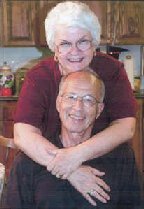I wasn't surprised that Kathy Taylor would choose to brazen it out after the discovery of official, certified records that show she voted in both Oklahoma and Florida in the 2000 presidential election.
(Our Tulsa World has the full video, titled Kathy Taylor in Denial Pep Rally, here.)
Bill Clinton set the standard for dealing with a scandal. If you're charismatic enough and if enough people are emotionally invested in your success, a denial, or even a non-denial denial, is enough to outweigh any amount of evidence and keep your supporters on board.
What's a non-denial denial? If you're careful enough about crafting your words, you can sound like you're denying something without actually denying it or telling a lie. People have a tendency to hear what they expect to hear, so if you say, "I didn't vote in two elections," as Kathy Taylor did, they'll hear, "I didn't vote twice in the same election." If you say, "I voted in the Gore election," they'll hear, "I voted for Gore."
The rhetorical question is another effective deflector. "Why would I do a thing like that? That's crazy!"
Then there's the little weasel word, aka the Clinton Clause, a term coined by Paul Greenberg, and defined as "the subtle escape hatch that comes with every glorious promise or general assertion." Here's what Taylor said at yesterday's press conference (click here to see KOTV's video):
I can tell you unequivocally that I never would have intentionally voted twice in two states.
What "unequivocally" gives, "intentionally" takes away, leaving her an out if someone comes forward and remembers seeing her voting in Precinct 70 in November 2000. Then there's the phrase "twice in two states" -- no one has suggested that she voted twice in two states, but official records show she voted once each in two states.
As a confirmation that the Taylor camp was taking a page out of the Bill Clinton textbook, the leadoff hitter in the Taylor press conference was Oklahoma's own bargain-basement Bill Clinton, Mike Turpen. With his white hair, height, and bulk, Turpen bore a striking resemblance to Slick Willy circa Monica, and he even trotted out the old line about the "politics of personal destruction."
Some more points from her press conference:
Taylor excused her rude response to KRMG and KJRH when they confronted her yesterday morning by saying she had received no phone call from McCorkell and no information. Of course, if she read BatesLine or listened to KRMG or KFAQ, she would have already known that this issue was in the news.
Don McCorkell is claiming that I voted in the 2000 presidential election in two different states. Let me say this to you: That is crazy. I have spent my life building my legal career -- tell me why I would endanger that career that I put myself through law school that I supported my daughter with to vote twice when it wouldn't have made a difference for anybody in this country. I can tell you unequivocally that I never would have intentionally voted twice in two states. That's nuts.
Don McCorkell didn't make that claim. He reported, as did I, as did KRMG, that official election records indicate that Kathy Taylor voted in the 2000 presidential election in two different states. Instead of denying it, she asks a rhetorical question about her motives.
The reference to her legal career is interesting. On her federal campaign contributions in 2000, she lists her occupation as "investments", "venture capitalist", or leaves it blank. In '01 she listed employer as "self-employed" with no occupation. In '02, it was "Taylor-Lobeck Trust/Executive" and occasionally "self-employed/attorney," and once as "community activist." Her career as an attorney seems to have ended by 2000. Certainly, at that point in her life, her standing at bar wasn't relevant to her standard of living.
We're talking about a period in my life, five years ago. Five years ago, my husband's job was in Florida. I moved in 2000 to Florida because that's where our income was, and that's where I registered to vote, and that is where I voted. I'm proud to tell you today that we're residents of the State of Oklahoma....
Maybe Taylor should tell that to her husband, who told the South Florida Sun-Sentinel, "I have checked as far as being a Florida resident. I don't know what it takes to be a Florida resident, but I think I'm one."
I have now seen a document that purports to say I voted in Tulsa, Oklahoma, in that same election. Let me say this: I do not believe that is true.
Again with the Clinton clause. Why not say simply, "That isn't true"?
Taylor's next line of defense is to attack the integrity of the Oklahoma election records. She claimed that there is a "high probability of error," and the original records no longer exist.
It's true that the voter "books" -- really bound greenbar printouts -- that you sign when you go to vote are destroyed after two years because of space issues. But right after the election, county election board workers add a vote credit to the computer record for each voter who signed the book. This is done because of state and federal laws regarding purging inactive voters. A list of every election you voted in for the last four years is maintained in the Oklahoma Election Management System. Each time you vote, it resets the clock for having your registration purged.
I called Gene Pace, secretary of the Tulsa County Election Board to ask him about the process. I was under the mistaken assumption that a clerk would have to type in each nine-digit voter ID number next to the name in the voter book, but that's not the case. The computer shows each record in the same sequence as it is in the book, and giving a voter credit for voting is as simple as clicking a button. The clerk does not type in a number or a name. KOTV talked to the clerk who does this:
Each paper precinct book, where voters sign to show they received a ballot, is transcribed by a clerk. That's what Judy Arndt does after each election. "And we double check it and check the book again." She described a methodical process of matching names and signatures, and the number of voters with the number of ballots. Everything has to match and she doesn't believe there is a mistake. "It bothers me because we work very hard to be right."
Pace said that a 5% error rate was a very liberal estimate. Based on my own experience with data entry, that seems quite high. After all the vote credits have been made, they double-check the list of credited voters against the signatures on the book. Assume that the second check also has a 5% error rate, that would make the odds of a data entry error going undetected 1 in 40,000. In Tulsa County in the November 2000 election, 218,691 votes were cast, which would mean 6 errors county-wide, with the assumptions we've made.
What are the odds that one of those putative six erroneous vote credits would be given to a Tulsa County resident who also happened to be registered to vote in Florida and voted by absentee ballot there?
Pace is now testing the accuracy of the process, using a recent election for which the voter books still exist.
Taylor attacked Pace's credibility, because he and his wife Fran contributed to McCorkell's campaign, and Fran appeared in a McCorkell TV ad. (Fran Pace served with McCorkell on the Greater Tulsa Council, as one of the planning district chairmen for Vision 2000, the mid '70s comprehensive planning effort.)
But Pace's credibility doesn't affect the accuracy of these records. The records in question were generated in 2000 when Scott Orbison was the election board secretary and before Gene Pace had any involvement with the election board. By December 2000, the voter credit information was in the Tulsa County computer and incorporated into the Oklahoma Election Management System. At that point, the data was out of the hands of the Tulsa County Election Board.
According to October 2000 voter data I have, Tulsa County Precinct 70 had three voters with the last name Taylor at that time: Kathryn L. Taylor, voter ID 720088835, Sherry Newman Taylor, voter ID 720263710, and Varley H. Taylor Jr., voter ID 720263785. All three were credited with voting in the November 2000 election, according to voter history data I have from the Oklahoma State Election Board from March 2001. So it doesn't appear that Kathy Taylor was mistakenly credited with the vote of one of the other two Taylors, a possibility that Kathy Taylor mentioned, nor would she have been accidentally credited with the vote of a Kathy Taylor from some other precinct, because the election board processes the voter books one precinct at a time.
That brings me to the last thing I'm going to address before going to bed: Some people have the impression, created by a misunderstanding of Don McCorkell's statement, that I've been sitting on this information for four years, only to release it at the moment of maximum impact on this election.
It's true that I have had for four years the Oklahoma records on which my Monday night report was based. The Florida records I've had for three years. These aren't specific to Kathy Taylor or any other voter. They are statewide databases -- every registered voter in Oklahoma and Florida, along with a history of elections in which the voter has voted.
I've had these discs since before I knew who Kathy Taylor was. I've had these discs since long before Gene Pace was appointed to the election board. He's never been in my house and hasn't altered the data on them. Plus, I have discs from other years that also cover the 2000 election and also confirm that Kathy Taylor was credited with an in-person vote for November 7, 2000, in Tulsa County precinct 70.
I didn't think to search these discs for Kathy Taylor's voting record until this last Saturday, the day after it was reported that Taylor and her husband improperly claimed homestead exemptions in both Oklahoma and Florida. I wanted to track down the certified documents to back up the electronic records, but with my full-time job, I didn't have time to pursue it.
Monday night I decided to publish what I had, explain its limitations, and invite someone else to pursue certified documents. Apparently several people had already done that, because KRMG had them by the next morning and the McCorkell campaign had already announced a press conference for Tuesday. There had been rumblings on Monday that something would be breaking on Tuesday, which was a motivation to go ahead and publish.
So I waited about 48 hours from the time I had satisfied myself that I had read the electronic records correctly until I wrote and published my story. (And keep in mind that a lot of that intervening 48 hours was spent working at my job and finishing my very long column for this week's Urban Tulsa Weekly. A little bit was spent sleeping.)

 The mailer was identical in layout to the mailer used two years ago by Art Justis, the councilor who was defeated by Mautino, and it listed the same bunch of supporters that backed Justis and backed the attempt to recall Mautino.
The mailer was identical in layout to the mailer used two years ago by Art Justis, the councilor who was defeated by Mautino, and it listed the same bunch of supporters that backed Justis and backed the attempt to recall Mautino.


